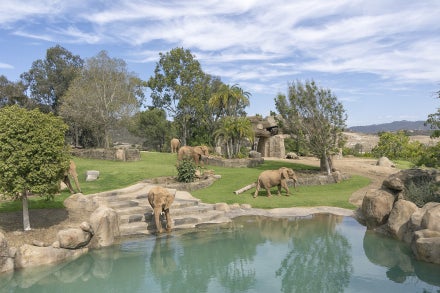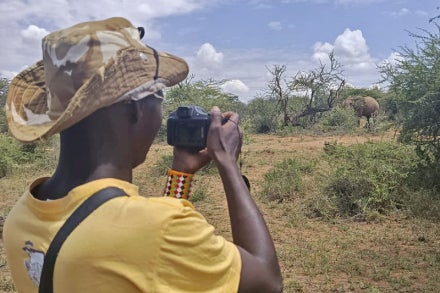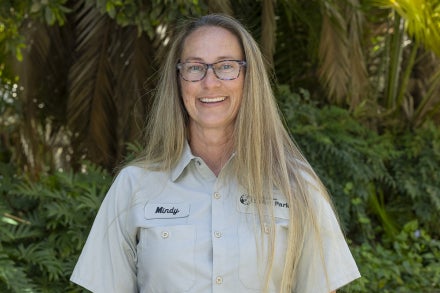
Two family groups of burrowing owls were brought into the Safari Park hospital last month to receive treatment for an infestation of a parasite commonly found in poultry called a sticktight flea. The little owls are part of a population being studied through a joint effort by San Diego Zoo Global and U.S. Fish and Wildlife Service.
“We treated two families of burrowing owls that we brought in from the wild,” said Colleen Wisinski, conservation program specialist for San Diego Zoo Institute for Conservation Research (ICR). “We wanted to make sure these owls would survive this incident and, working with U.S. Fish and Wildlife Service and California Department of Fish and Wildlife, we decided to bring them in for treatment.”
The burrowing owls were observed by ICR researchers who have been studying this local population since 2013. In recent weeks they noticed that the owls showed a visible infestation of the parasite and they believe at least one owl died as a result of the infestation.
Burrowing owls are increasingly rare in San Diego county and the work being done to observe, learn about and protect this population is important to maintaining the species in San Diego and throughout Southern California,” said Mendel Stewart, field supervisor for the Service’s Carlsbad Fish and Wildlife Office
While the birds were being cared for by the veterinary team at at the Safari Park medical center, members of the ICR team worked with Safari Park Integrated Pest Management staff to reduce the parasites in the area where the birds live.
“We found all of the birds had some degree of flea infestation, with two adults suffering from severe anemia.” said Lauren Howard DVM, Associate Director of Veterinary Services, San Diego Zoo Safari Park. “We are not just treating the fleas but we are looking at what might be underlying causes of this infestation so we can get these birds back into the wild.”
Although a couple of the owls were in critical condition when they arrived at the Safari Park, all responded well to treatment and were released back into the area they inhabit just a few weeks later.
The mission of the U.S. Fish and Wildlife Service is working with others to conserve, protect, and enhance fish, wildlife, plants, and their habitats for the continuing benefit of the American people. We are both a leader and trusted partner in fish and wildlife conservation, known for our scientific excellence, stewardship of lands and natural resources, dedicated professionals, and commitment to public service. For more information on our work and the people who make it happen, visit www.fws.gov.




